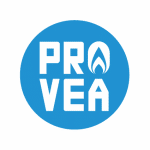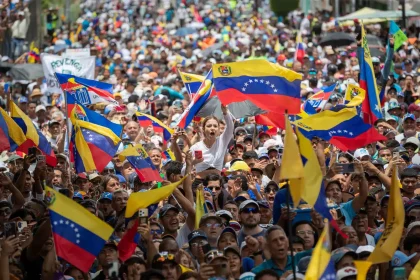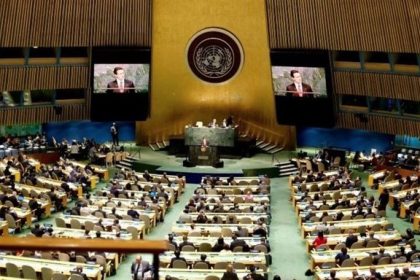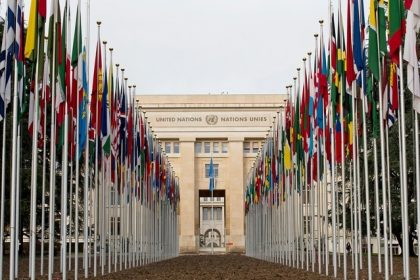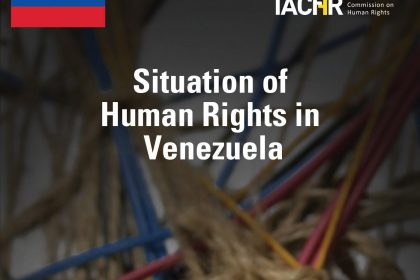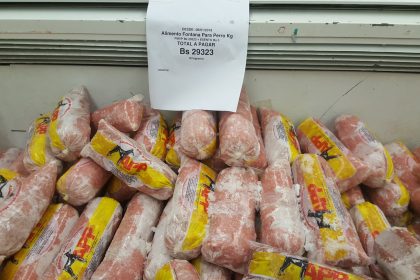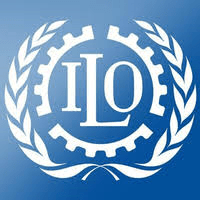On August 5, the Trump administration announced new sanctions against the Nicolás Maduro government in Venezuela. This recent extension of Executive Order 13692 is intended to further limit the Maduro government’s access to global commerce. The sanctions are designed to limit the activities of third-party companies that engage with the Venezuelan government.
As organizations devoted to advancing human rights and opposing authoritarianism in Venezuela, which has sparked a severe human rights and refugee crisis, the signing groups express our deep concern about the potential for these broad economic sanctions to aggravate Venezuela’s humanitarian emergency, and to inflict further suffering on the Venezuelan people. The country’s deep economic crisis predates U.S. sanctions, and has its roots in years of mismanagement and corruption. However, as underscored by the UN High Commissioner for Human Rights in her July report, financial and oil sanctions are “exacerbating further the effects of the economic crisis, and thus the humanitarian situation.”
Millions of Venezuelans today are suffering from widespread lack of access to essential goods including food and medicine. Venezuela’s oil exports represent the main source of hard currency used to pay for imports, and limiting this revenue puts the importation of food and medicine at risk.
The Executive Order signed on Monday claims that these latest sanctions will not impact transactions relating to imports of food, medicine, or clothing. In practice, however, similar exemptions included in previous rounds of U.S. sanctions have failed to prevent the negative consequences of overcompliance. It is clear that this practice has had the effect of significantly restricting legal work by independent humanitarian organizations in Venezuela. Financial institutions, rather than risk running afoul of the U.S. Treasury Department, have chosen to freeze legitimate accounts and deny legal transactions, even those associated with actors working to relieve the country’s humanitarian emergency or support a democratic transition. What is more, the economic impact of these sanctions will be to reduce overall imports in a context in which millions of ordinary Venezuelan people are already highly vulnerable.
The Trump administration’s announcement is premised on the idea that imposing broad economic sanctions will force regime change in the short term. Unfortunately, as shown in the cases of Iran, North Korea, Cuba, and Syria, such sanctions often strengthen authoritarian leaders by providing a useful scapegoat to blame for their repression, and deepen the population’s susceptibility to policies that amount to forms of social control imposed by these governments.
It should be lost on no one that the announcement comes as representatives of the Maduro government and the political opposition are in Barbados for a negotiation process mediated by the Norwegian government. International efforts to pressure actors to advance democratic and nonviolent change in Venezuela must be oriented towards this negotiation process, avoiding inflicting even greater harm on a population that has already seen a severe degradation of its human rights by the government of Nicolás Maduro.
We call on the U.S. government to find ways to address the Venezuela crisis that do not worsen human suffering on the ground. If there is no way to avoid the human cost of these measures and provide humanitarian assistance with the urgency and breadth that is required, then they should be lifted. The U.S. government needs to facilitate efforts to achieve a political solution to the conflict, rather than complicate them.
Acción Solidaria – Venezuela
Caleidoscopio Humano – Venezuela
Civilis Derechos Humanos – Venezuela
Centro de Derechos Humanos de la Universidad Católica Andrés Bello – Venezuela
Comisión de DDHH del Zulia (Codhez) – Venezuela
Comunidad en Movimiento A.C – Venezuela
Instituto Mead de Venezuela A.C, Conciencia Ciudadana A.C – Venezuela
Laboratorio de Paz – Venezuela
Proyecta Ciudadanía A.C – Venezuela
Programa Venezolano de Educación Acción en Derechos Humanos (PROVEA) – Venezuela
Unión Vecinal para la Participación Ciudadana A.C – Venezuela
Conectas Direitos Humanos – Brazil
Coordinadora Nacional de Derechos Humanos (CNDDHH) – Perú
Dejusticia, Centro de Estudios de Derecho, Justicia y Sociedad – Colombia
Washington Office on Latin America (WOLA) – U.S.
Missão Paz – Brazil
